Navigating the world of food choices plays a vital role in managing diabetes and supporting overall well-being. Some foods are praised by dietitians for their ability to help stabilize blood sugar and provide lasting energy, while others are best enjoyed sparingly due to their potential to cause spikes and imbalances.
Understanding the impact of each item on the body can empower individuals to make informed, health-conscious decisions. Presented here are ten foods that earn a thumbs-up from nutrition experts, along with seven that should be approached with caution. Each one comes with insights into how it influences health, making it easier to build a balanced and supportive diet.
1. Leafy Greens

Green leafy vegetables are a staple in diabetes-friendly diets. Known for their rich nutrient content, these greens are a powerhouse of vitamins and minerals. With virtually no impact on blood sugar levels, they are an excellent choice for salads and stir-fries.
Incorporating these greens into meals can be both delicious and rewarding. Packed with fiber, they aid digestion while keeping you full longer. They are low in calories, making them ideal for weight management.
Adding a handful of kale or spinach to your daily diet can significantly boost your intake of essential nutrients without raising blood sugar levels.
2. Whole Grains
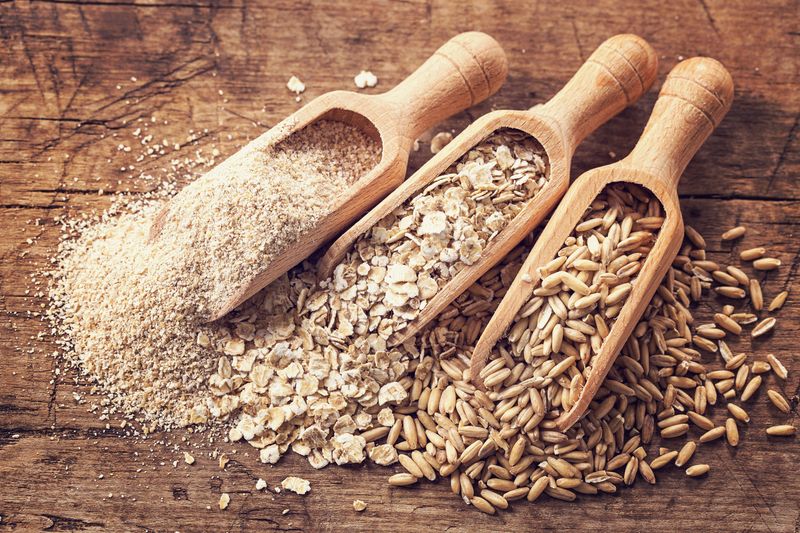
Whole grains are a fantastic choice for those managing diabetes. Unlike refined grains, they contain the entire grain kernel, offering more fiber and nutrients. This helps in maintaining stable blood sugar levels.
Including whole grains like brown rice, quinoa, and oats in your diet can enhance overall health. They provide lasting energy and can help reduce the risk of heart disease.
For a satisfying meal, consider swapping white rice for quinoa or choosing whole grain bread over white. These small changes can make a big difference in blood sugar control and overall health.
3. Fatty Fish

Rich in omega-3 fatty acids, fatty fish like salmon and mackerel are celebrated for their heart-healthy benefits, particularly for those with diabetes. These fish help support cardiovascular health by reducing inflammation and improving blood lipid profiles.
Not only are they delicious, but including them in your diet can lead to improved heart health. Grilling a salmon fillet for dinner or adding mackerel to salads are great ways to incorporate these nutritious fish into your meals. The health benefits are a bonus to the delightful flavors they offer.
4. Berries
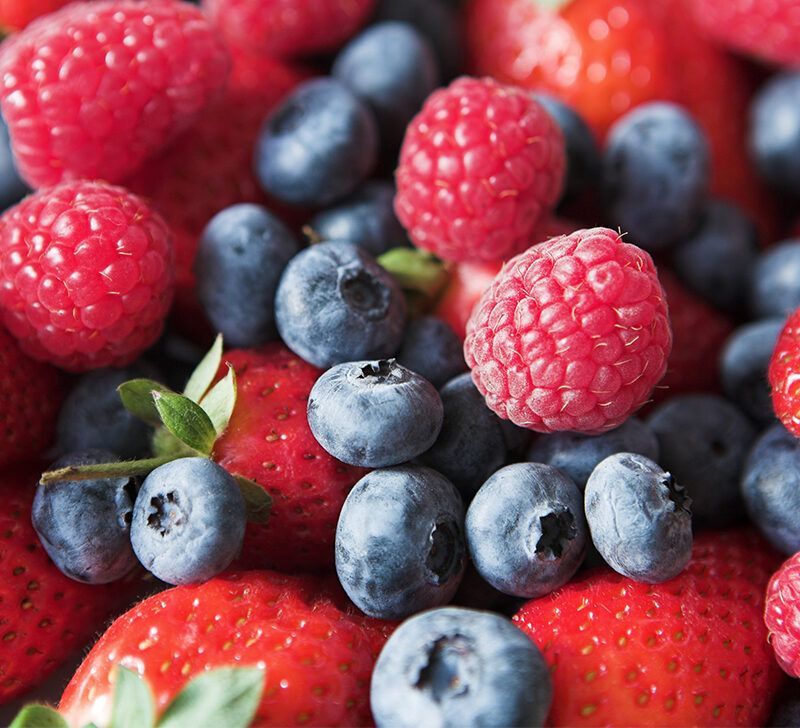
Berries are a sweet treat without the guilt for those managing diabetes. Packed with antioxidants and fiber, they help in stabilizing blood sugar levels.
These colorful fruits can be enjoyed fresh or frozen, making them a versatile addition to meals. They add a burst of flavor to yogurt or oatmeal.
Choosing berries over more sugary snacks can satisfy sweet cravings while providing essential nutrients. Their natural sweetness paired with health benefits makes them a top pick for diabetic-friendly diets.
5. Beans & Lentils
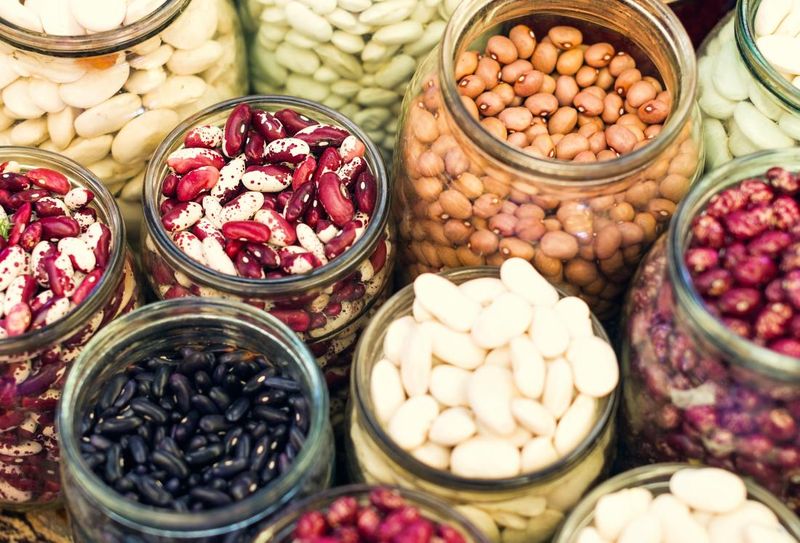
Beans and lentils are nutrition powerhouses that fit perfectly into a diabetic meal plan. Rich in protein and fiber, they help in maintaining stable blood sugar levels.
These legumes offer a hearty texture and can be used in soups, stews, or salads. Their versatility makes them a staple in various cuisines worldwide.
Incorporating beans and lentils into your meals can be delectable and filling. They provide sustained energy and can help in weight management, making them a valuable addition to any diet.
6. Nuts
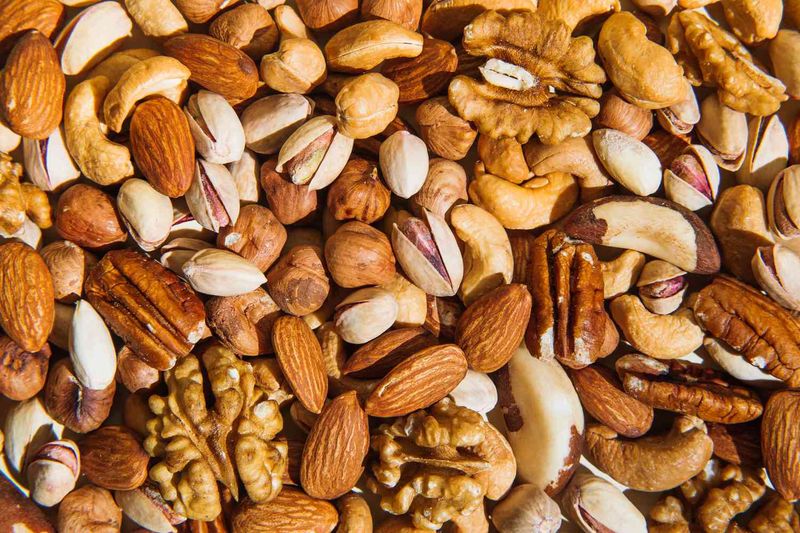
Nuts are a crunchy delight that offer numerous health benefits. They are rich in healthy fats and protein, making them a satisfying snack for those with diabetes.
These tiny nutritional powerhouses can be enjoyed on their own or added to dishes for extra texture and flavor. They help in controlling hunger and stabilizing blood sugar levels.
Whether it’s a handful of almonds or walnuts, incorporating nuts into your diet can boost heart health and provide essential nutrients. Their convenience and flavor make them a popular choice among health-conscious individuals.
7. Greek Yogurt
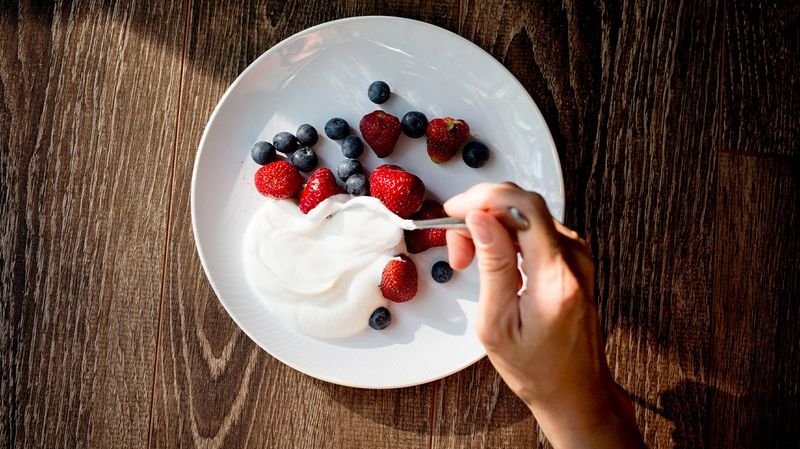
Greek yogurt is a creamy and delicious treat that’s friendly to those managing diabetes. Rich in protein and low in carbohydrates, it helps in maintaining balanced blood sugar levels.
This versatile food can be enjoyed plain or with added fruits and nuts for a nutritious breakfast or snack. Its high protein content keeps you full and satisfied.
Opting for plain Greek yogurt over flavored varieties can minimize sugar intake while providing essential nutrients. It’s a smart choice for anyone looking to improve their diet without sacrificing taste.
8. Extra Virgin Olive Oil

Extra virgin olive oil is a staple in Mediterranean diets, known for its health benefits. It’s rich in monounsaturated fats, which support heart health and help in managing diabetes.
Using olive oil in cooking or as a salad dressing can enhance flavor and provide important nutrients. It’s a healthier alternative to butter and other saturated fats.
Incorporating extra virgin olive oil into your diet is a simple way to improve heart health while enjoying delicious meals. Its rich flavor and health benefits make it a worthy addition to any kitchen.
9. Cinnamon
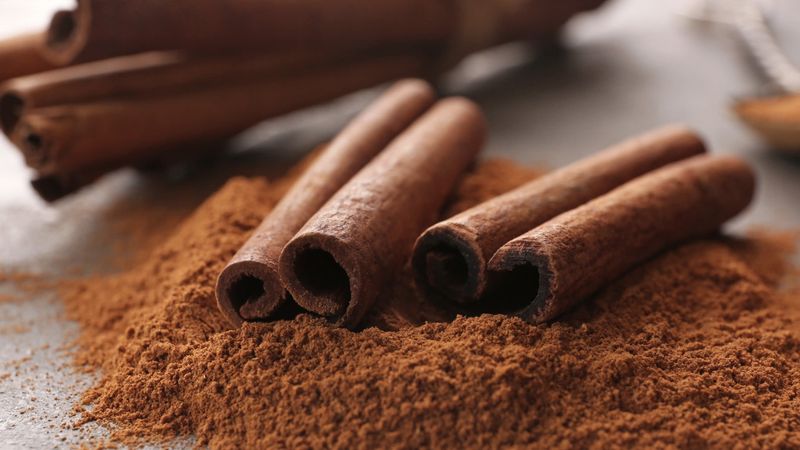
Cinnamon isn’t just for adding flavor; it’s a spice with potential health benefits for diabetes management. Some studies suggest that it can help lower blood sugar levels.
Sprinkling cinnamon on your morning oatmeal or in a smoothie can give a warm, spicy flavor while potentially aiding in glucose control. It’s a flavorful way to enhance meals.
While not a substitute for medication, incorporating cinnamon into your diet can be part of a healthy lifestyle. Its comforting aroma and taste add a delightful twist to various dishes.
10. Avocados
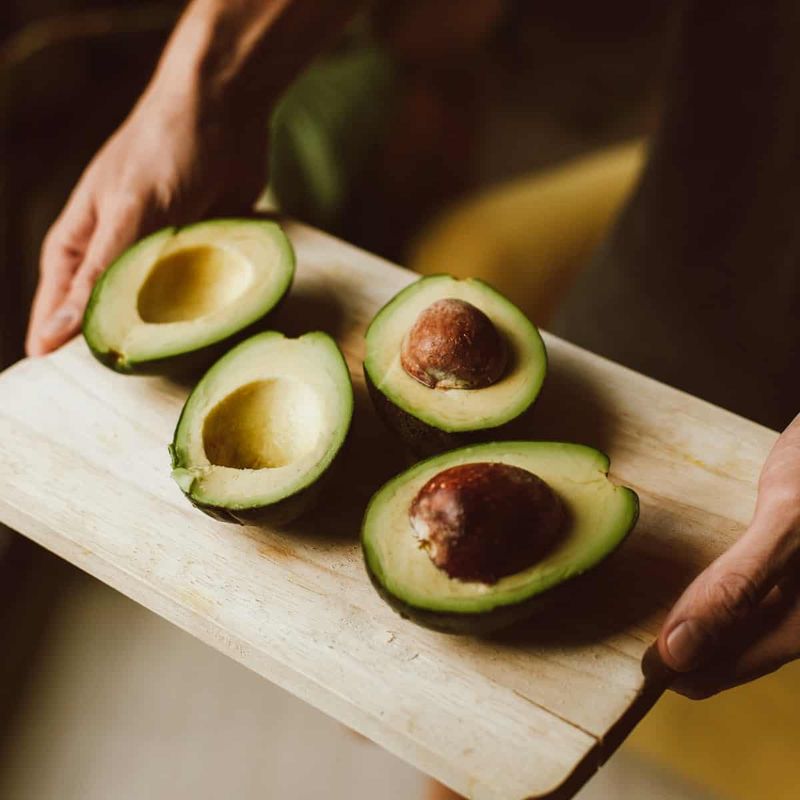
Avocados are more than just a trendy food item; they’re a rich source of healthy fats and fiber. These nutrients are beneficial for those managing diabetes.
Adding avocado to salads or spreading it on whole grain toast can provide a creamy texture and rich flavor. Its healthy fats support heart health.
With a unique taste and versatile usage, avocados can be included in various meals. Their nutritional benefits make them a fantastic option for a balanced, diabetes-friendly diet.
11. Processed Meats

Processed meats often find their way into our diets, but they might not be the best choice for those managing diabetes. High in sodium and unhealthy fats, they can affect heart health.
Limiting consumption of sausages, bacon, and deli meats is wise. These meats can contribute to inflammation and may increase the risk of heart disease.
Opting for fresh, lean meats or plant-based proteins can be a healthier alternative. Making mindful choices about processed meats can support better overall health and diabetes management.
12. Fried Foods

Fried foods are often tempting, but they may not align with a diabetes-friendly diet. High in unhealthy fats and calories, they can spike blood sugar levels.
Reducing the intake of fried chicken, french fries, and other deep-fried delights is advisable. These foods can lead to weight gain and increased heart disease risk.
Exploring healthier cooking methods such as baking or grilling can offer similar flavors without the added fats. Making these changes can contribute to better blood sugar control and overall health.
13. Sugary Beverages

Sugary beverages are a common part of many diets, but they can be detrimental to those managing diabetes. High in sugar, they can cause rapid spikes in blood glucose levels.
Limiting consumption of sodas, fruit juices, and energy drinks is crucial. These beverages offer little nutritional value and can contribute to weight gain.
Choosing water, unsweetened tea, or other low-calorie drinks instead can support better blood sugar control. Being mindful of beverage choices is an essential step in managing diabetes effectively.
14. White Bread

White bread is a staple in many households, but it might not be the best choice for those with diabetes. Made from refined grains, it can lead to spikes in blood sugar levels.
Swapping white bread for whole grain or whole wheat alternatives can offer more fiber and nutrients. These alternatives support more stable blood glucose levels.
Being conscious of bread choices and opting for whole grains can be a simple yet effective way to improve diet and manage diabetes. It’s a small change with a big impact.
15. Dried Fruits
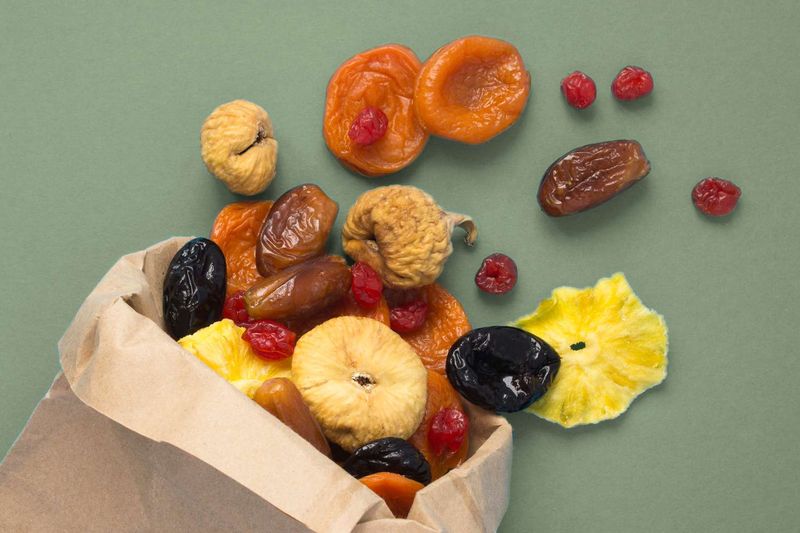
Dried fruits may seem like a healthy snack, but they can be a hidden source of sugar. Concentrated sugars in dried fruits can affect blood glucose levels.
Enjoying dried fruits in moderation is key, as they can add up in sugar content quickly. Fresh fruits are often a better choice for those managing diabetes.
Being aware of portion sizes and choosing fresh over dried can help in maintaining balanced blood sugar levels. It’s all about making mindful choices for better health.
16. Flavored Yogurts
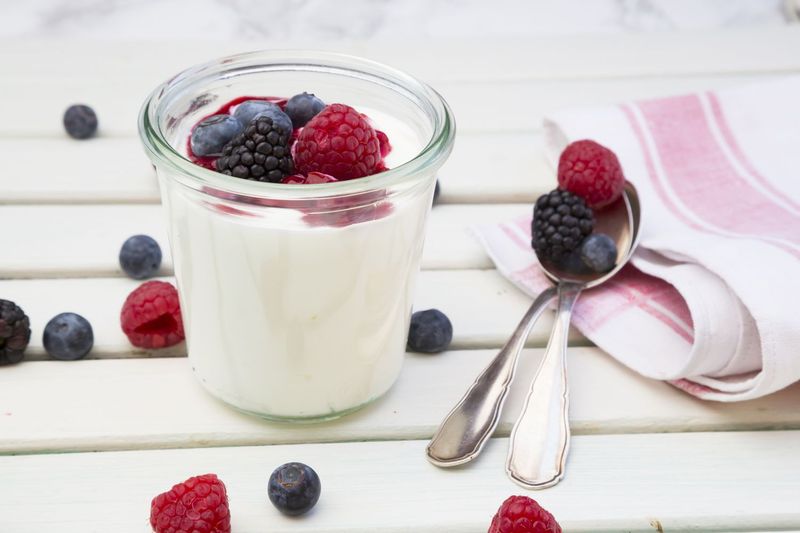
Flavored yogurts can be enticing, but they often contain added sugars that may not be suitable for diabetes management. These sugars can lead to increased blood sugar levels.
Opting for plain yogurt and adding fresh fruits can provide a nutritious snack without the extra sugar. It’s a simple way to enjoy yogurt without compromising health.
Choosing yogurt varieties wisely can support more stable blood glucose levels. It’s about making choices that align with a diabetes-friendly diet while still enjoying the taste.
17. Sweetened Breakfast Cereals
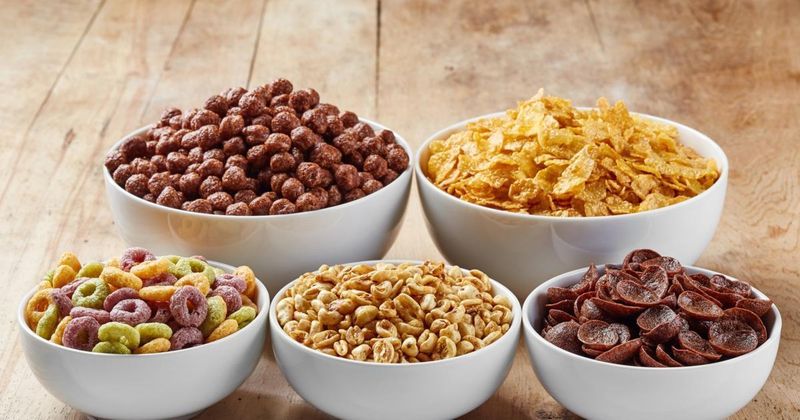
Sweetened breakfast cereals can be a morning staple, but they might not be the best choice for those managing diabetes. High in added sugars, they can cause blood sugar spikes.
Selecting cereals with whole grains and minimal added sugars can be a healthier start to the day. Pairing with milk or yogurt provides balanced nutrition.
Making informed choices about breakfast cereals can contribute to better blood sugar control. It’s about starting the day on the right note with a nutritious breakfast that supports health.
Leave a comment